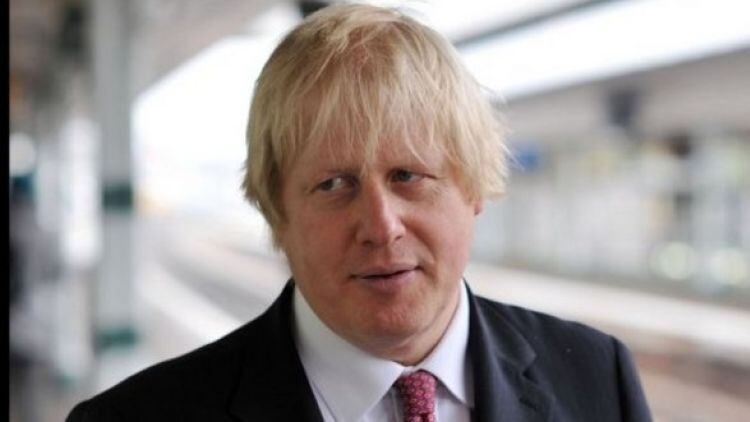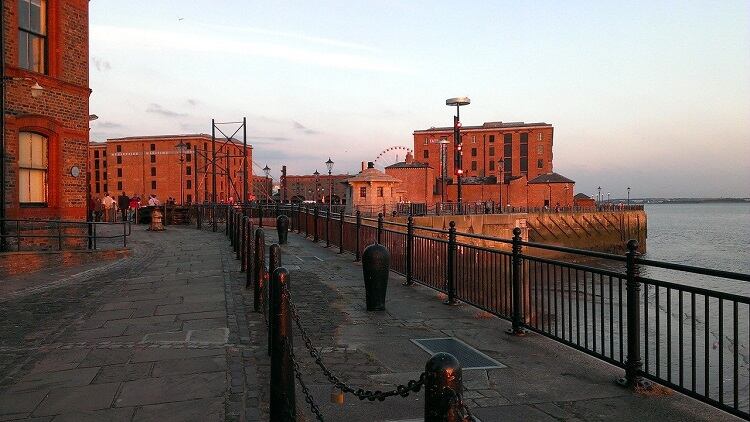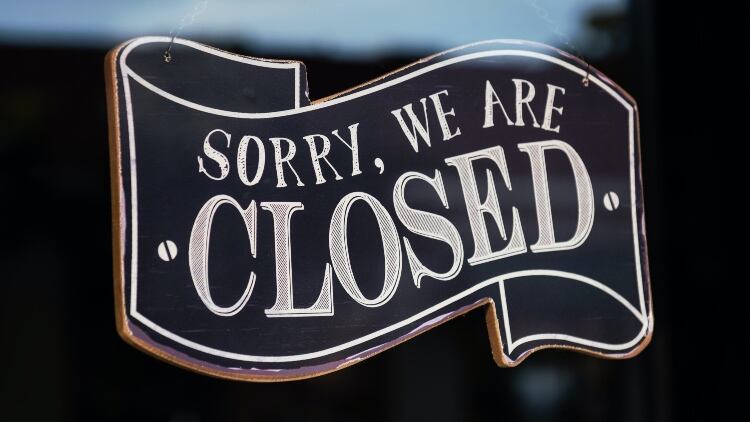Prime Minister Boris Johnson announced that Liverpool will be the first area of the country subject to third tier, “very high”, lockdown measures which will see last orders called in pubs and bars – except where serving substantial meals – across its City Region comprising of Halton, Knowsley, Liverpool, Sefton, St Helens and Wirral on Wednesday.
According to figures from the Altus Group, the area is home to 1,173 pubs.
Tier three restrictions also mean that social mixing is banned both indoors and outdoors with residents told to avoid all non-essential travel and remain in their locality with schools and places of worship remaining open.
Hard-hit areas including North Tyneside, Newcastle, Greater Manchester, Sheffield and Northumberland will face second tier, “high”, restrictions meaning that venues will stay open subject to the 10pm curfew, mixing between households indoors will be banned and the “rule of six” will govern outdoor gatherings.
First tier, “medium”, measures – the baseline restrictions in place across England including the 10pm curfew and “rule of six” – will apply to areas with the lowest rates of infection.
The Prime Minister’s statement came after the number of cases quadrupled in the three weeks prior with more people hospitalised by Covid-19 than when the Government enforced lockdown in March.
“I take no pleasure whatsoever in imposing restrictions on these businesses, many of which have gone to great lengths to reopen as safely as possible,” he told MPs.
“Nor do I want to stop people enjoying themselves, but we must act to save lives. And the evidence shows that in changing our behaviour in restricting transmission between us our actions are saving lives.”
Scotland has confirmed that it will devise its own Covid-19 tiering system that will closely mirror that imposed upon the rest of the UK.
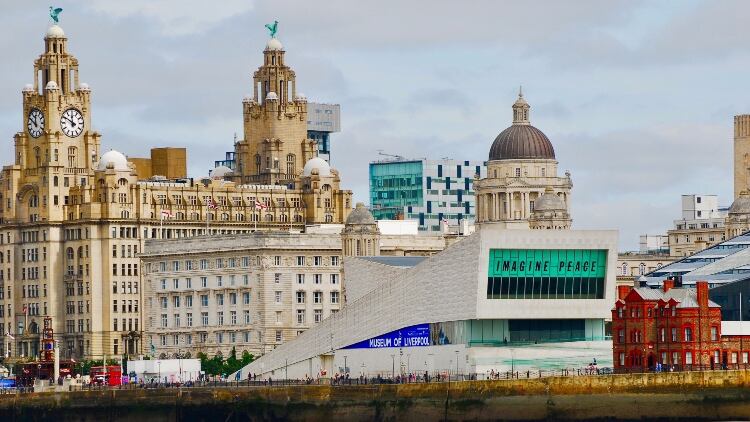
Pub scapegoating
The new system is similar to that currently in place across the Republic of Ireland, which sees each county assigned a different level of risk. The whole country is currently at risk level three, meaning that indoor dining and drinking in restaurants, pubs and bars is banned.
However, the measures introduced specifically across the Liverpool City Region largely reflect those implemented in the French cities of Marseille, Lyon, Lille, Grenoble, Saint-Étienne and the capital Paris.
The French government called time on bars and cafés in Paris for two weeks from 6 October after declaring the city and its nearest suburbs to be zones of “maximum alert” following a period of high Covid-19 infection rates.
Restaurants, however, were allowed remain open provided strict hygiene rules are in place.
France's maximum alert level comes into force when a local infection rate exceeds 250 infections per 100,000 people and at least 30% of intensive care beds are reserved for Covid-19 patients.
By comparison, Knowsley in the Liverpool City Region recorded the second-highest infection rate in England for the period from 28 September to 11 October according to Public Health England (PHE) with 1,537 confirmed cases, or 1,027.6 per 100,000 people.
The city of Liverpool recorded 4,757, or 961.4 per 100,000.
In response to the measures, the British Beer and Pub Association’s (BBPA) chief executive Emma McClarkin said that local lockdowns that close pubs will “devastate” the sector and communities it serves. “Thousands of local pubs and jobs will be lost for good,” she added.
“It remains the case that even before these new local lockdown restrictions, pubs were already struggling for survival with low consumer confidence, the 10pm curfew, rule of six and limited operating space due to social distancing.
“For those pubs facing the middle tier of restrictions, they will come under even more pressure as customers from two different households will not be able to meet indoors in them.”
The Campaign for Real Ale’s (CAMRA) chief executive Tom Stainer went as far as to claim that the latest measures “exacerbated the feeling that pubs have become a scapegoat for the pandemic”.
“In Merseyside, pubs are being forced to close whilst similar businesses like restaurants are allowed to stay open,” he said. “This is despite the fact publicans have done everything asked of them to make their venues Covid-secure.
“In the rest of the country with medium and high alert levels, pubs face severely reduced trade as a result of the Government undermining consumer confidence.”
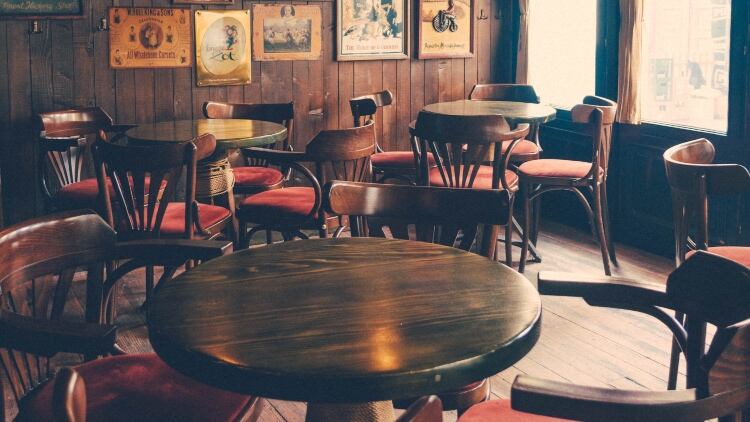
Far stronger financial package needed
While there is some relief that Johnson hasn’t plumped for another national lockdown, despite claims that Government scientists called for a two-week “circuit breaker” at a meeting on 21 September, industry leaders are forecasting that the impact of the tiered system on parts of the county facing sterner measures will be profound.
As reported by The Morning Advertiser (MA), Liverpool City Region’s political leaders recently stated that their local authorities had incurred losses of more than £350m since the start of the pandemic.
Even before the latest announcement, senior figures estimated that 20,000 jobs could be lost in Liverpool’s hospitality industry by Christmas without urgent support.
What’s more, Liverpool council recently estimated that its budget deficit is £45.6m in a best-case scenario, rising to £66m in a worst-case scenario. Consequently, Mayor Joe Anderson described the health secretary’s recent offer of £7m funding as a “drop in the ocean”.
In response to the latest measures, UKHospitality chief executive Kate Nicholls said that we are quickly reaching “the point of no return” for many pub, bar and restaurant businesses.
“For those businesses in tier three areas, forced to close their doors again, things look bleak but the support announced last week for closed businesses will hopefully give them the breathing room they need to survive another lockdown,” she explained.
BBPA boss McClarkin added: “If the Government is really going to go ahead and force much of our sector to close, then a far stronger financial package of support is going to be needed than what the Chancellor already announced.
“The cash grants for businesses forced to close will not cover high fixed costs and write off costs for and are lower when compared to the grant support given during the national lockdown.
“Likewise grants and the additional job retention support should be available to those pubs facing the middle tier of restrictions and the inevitable further decline in their revenue they face.
“Accessing that support remains a critical concern for us too. We fear many businesses won't be eligible for the support due to State Aid caps.
Steven Alton, chief executive of the British Institute of Innkeeping said that, prior to lockdown, hospitality was one of the only sectors in growth, providing employment, tax revenue and vital social value, and can only provide ongoing employment if “comprehensive, sector-specific support” is provided.
“Without that support, hundreds of thousands of jobs will be lost, many in the next few weeks,” he explained. “We proved as a sector during trading in July and August with over 60m customers every week that we were able to operate safely whilst kick starting the economy, with no discernible rise in national infections.
“In order to have any chance of survival, as a minimum where any restrictions are placed on our sector, additional business support is critical.
“Pubs in all tiers will urgently need: Full Job Support Scheme access with no employer contribution and Government disruption grants linked to their rateable value to safeguard the future of these viable businesses.”
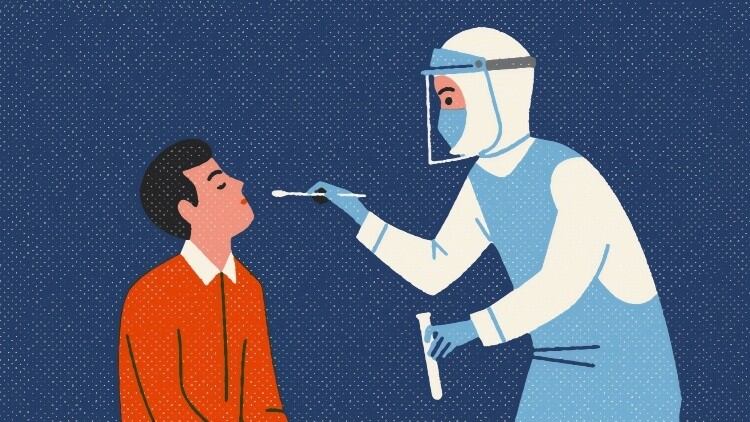
Singling out pubs ‘wrong’
The Government’s handling of the pub sector during Covid-19 had already led to the humble boozer becoming arguably one of the most contentious outposts of British culture during the pandemic, and shouldering more than its fair share of blame for its second spike.
According to a poll by YouGov published on 2 October, almost half (46%) of Brits surveyed now think the Government made a mistake in allowing pubs to reopen from 4 July the first place, with 41% still backing the decision and 13% unsure.
This compares to 45% who believe the Government was wrong to allow students to return to universities and 41% who believe they made a mistake in encouraging people to return to workplaces.
However, BBPA chief executive McClarkin described new measures which single out pubs and bars as “simply the wrong decision” and “grossly unfair”.
“It’s why we are calling for a proportionate response to the virus based on tangible transmission evidence,” she continued.
“PHE figures released on Friday show hospitality was responsible for just 3% of total transmissions. Where is the merit in closing pubs to combat the virus based on that information? Especially when they are providing a safe and regulated place for people to meet at.”
The Government’s failure to produce compelling evidence justifying measures targeting hospitality – which many believe are driving Brits away from Covid-secure venues – has caused outrage.
As reported by The MA’s sister title MCA, chief medical officer Chris Whitty has even been accused of using misleading data to justify the expected shutdown of the north of England.
According to MCA, Whitty briefed 149 MPs with unpublished data, seeking to make the case that pubs, bars, restaurants and cafes are a key source of virus transmission.
The data subset – which relies on contact tracing figures from just 98 pubs and 67 cafes and restaurants – appears to show hospitality settings account for 24% of common exposure for customers and staff in pubs and restaurants, rising to 30% in the under 30s.
However, NHS Test and Trace figures show that a huge 75.3% of transmissions take place at home, with only 5.5% happening in pubs, restaurants and churches.
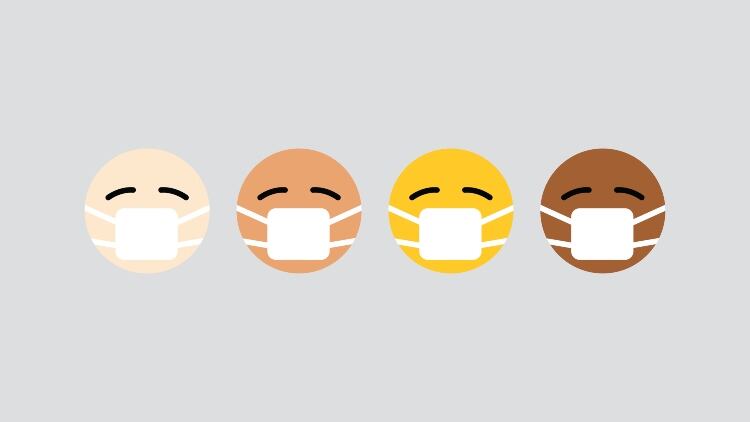
Worst of both worlds
Greater Manchester was among the areas to avoid the toughest coronavirus restrictions as the Prime Minister outlined his new three-tiered system – meaning that the city region’s pubs and bars will remain open.
What’s more, while the city of Nottingham recorded the highest rate of infection in the country during the same 28 September to 11 October period – 3,646 cases, or 1,101.3 per 100,000 people, were recorded – according to PHE, it will be placed into Tier Two along with the rest of Nottinghamshire.
However, UKHospitality chief executive Kate Nicholls outlined “a concerning lack of support on offer” for hospitality businesses in Tier Two, and to a lesser extent Tier One, despite facing restrictions that is seeing trade dip by between 40% to 60%.
“They will have the worst of both worlds, operating under significant restrictions without the financial support on offer to Tier Three businesses,” she explained. “Without enhanced grant support and enhanced Government contributions to the Job Support Scheme, many are going to fall by the wayside.
BII boss Alton added: “For those who are not forced to close as they are not in High Risk areas, restricted trading hours, empty high streets and consumer confidence at an all-time low means their once viable businesses are now on a cliff-edge as the furlough scheme ends for them in 19 days.
“The Job Support Scheme will be of little use to employers, as they will need to contribute funds they do not have towards the cost of staff wages for hours not being worked.
Alton described the hospitality sector as being “uniquely affected” by all three tiers and fears that many successful operators will be forced to make staff cuts and shut their doors for good.
“The long-term cost of those redundancies will far outweigh the short term support that is needed for hospitality this winter,” he said. “With so many young people in particular employed by our sector, the Government must recognise this and provide this critical support.
“No matter where pubs are within the new three tier system, they are restricted in how they can trade. Already the impact of the rule of six and the 10pm curfew has seen a drop in trade of 30% or more in businesses that were only just breaking even before these further regulations were implemented.”
Areas in Tier Two
- Cheshire – Cheshire West and Chester; Cheshire East
- Greater Manchester – Manchester; Bolton; Bury; Stockport; Tameside; Trafford; Wigan; Salford; Rochdale; Oldham; Warrington
- Derbyshire – High Peak (the wards of: Tintwistle, Padfield, Dinting, St John's, Old Glossop, Whitfield, Simmondley, Gamesley, Howard Town, Hadfield South, Hadfield North)
- Lancashire – Lancashire; Blackpool; Preston; Blackburn with Darwen; Burnley
- West Yorkshire – Leeds; Bradford; Kirklees; Calderdale; Wakefield
- South Yorkshire – Barnsley; Rotherham; Doncaster; Sheffield
- North East – Newcastle; South Tyneside; North Tyneside; Gateshead; Sunderland; Durham; Northumberland
- Tees Valley – Middlesbrough; Redcar and Cleveland; Stockton-on-Tees; Darlington; Hartlepool
- West Midlands – Birmingham; Sandwell; Solihull; Wolverhampton; Walsall
- Leicester – Leicester; Oadby and Wigston
- Nottingham – Nottinghamshire; Nottingham City
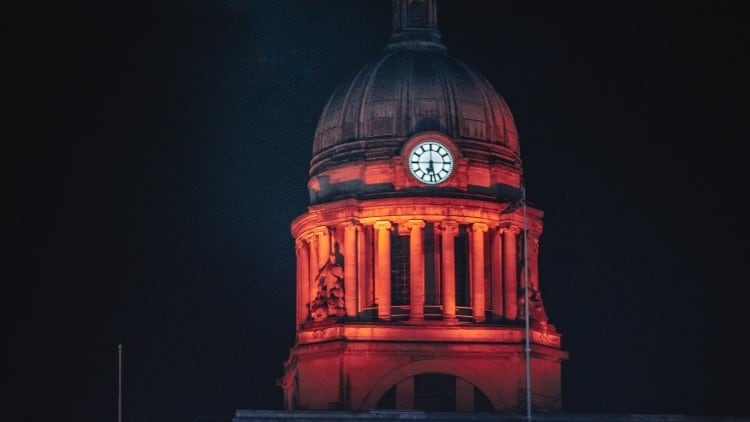
Legal challenge
The BBPA’s McClarkin also believes it is imperative that the Government further clarifies benchmarks between the different tiers moving forwards.
“If regions across England do go into lockdown, then they will need to be reviewed far more frequently than once a month,” she added. “Reviewing the lockdowns at least every two weeks would give closed pubs a glimmer of hope that they can return back to trade sooner than later.”
UKHospitality’s Nicholls also called on the Government to “at the very least” rethink the mandatory 10pm curfew in those areas where infection rates are low.
“It was imposed without credible evidence that hospitality is the source of increases in transmission, while some evidence points the other way,” she said.
“To leave hospitality out to dry would be a grave and risky move and would cost many people their jobs.”
However, prior to the Prime Minister’s announcement, Greater Manchester’s night-time economy adviser, Sacha Lord, initiated a legal challenge to the lockdown of hospitality and entertainment venues across the north of England.
Northern leaders, including the Mayor of Greater Manchester Andy Burnham, held urgent talks with the Government over the new rules over the weekend prior to their announcement.
Led by Lord, the challenge is backed by supported by The Night Time Industries Association, the BBPA, JW Lees Brewery, Joseph Holt Brewery, Robinsons Brewery, New River Pub Company, Hawthorn Leisure, and a number of operators across Greater Manchester.
"Despite discussions and ongoing calls for data, we have not yet been shown any tangible scientific evidence to merit a full closure of the hospitality and entertainment sectors across Greater Manchester.
"We have therefore been left with little choice but to escalate the matter further.
"We have now engaged lawyers to begin a judicial review into the legality of the emergency restrictions due to be imposed on the hospitality and entertainment sectors."

